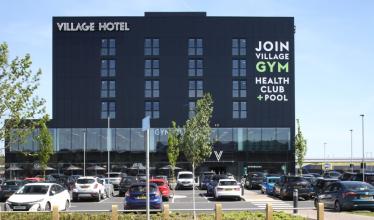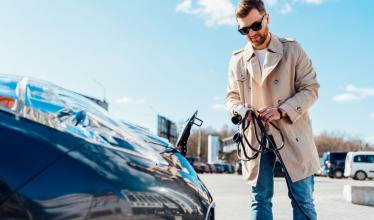bp has unveiled plans to invest up to £50 million in a new, state-of-the-art electric vehicle battery testing centre and analytical laboratory in the UK. The company has previously announced its intention to invest up to £18 billion in the UK’s energy system by the end of 2030.
Planned to open by the end of 2024, the new facilities will be located at bp’s existing global headquarters for its Castrol business in Pangbourne, Berkshire, and will support the technology, engineering and science roles housed there today.
The site already undertakes research and development of fuels, lubricants and EV fluids and aims to become a leading hub for fluid technologies and engineering in the UK.
“This additional investment will help accelerate the transition to EVs by developing solutions to help decarbonise the transport sector. This is another example of our ambitious plans to do more, and go faster,” said Louise Kingham, bp’s UK Head of Country.
The new facilities will help advance the development of leading fluid technologies and engineering for hybrid and fully electric vehicles, aiming to bring the industry closer to achieving the key tipping points for mainstream EV adoption. Castrol ON advanced e-fluids manage temperatures within the battery that enables ultra-fast EV charging and improves efficiency, which help EVs to go further on a single charge and extend the life of the drivetrain system.
“We are committed to supporting the electrification of transport and the take-up of electric vehicles. The growth of EV fluids is a huge opportunity, and we aim to be the market leader in this sector,” said Michelle Jou, Castrol CEO.
“Two thirds of the world’s major car manufacturers use Castrol ON EV fluids as a part of their factory fill and we also supply Castrol ON EV fluids to the Jaguar TCS Racing Formula E team.”

The facilities will be located at bp’s existing Pangbourne headquarters for its Castrol business.
“This significant new investment will now allow us to build additional strategic technologies and capabilities to further advance EV fluids for the future. The facilities will also be an amazing showcase to demonstrate our integrated technology expertise to customers as we help drive the transition to EVs,” Jou continued.
Castrol intends to use the new facilities to continue to work with car manufacturers and suppliers to co-engineer future battery technology and associated thermal management fluids. It will also look to develop future technologies required to help to enable the ultra-fast charging which underpins bp pulse’s growth strategy.
“At bp pulse we aim to provide the fastest and most reliable charging experience to our EV customers and continue to invest in our rapid and ultra-fast network globally for passenger cars and trucks. This investment will help us co-develop battery and charger technology and digital solutions with our OEM partners to help EVs go further, charge faster and last longer,” added bp pulse senior vice president Richard Bartlett.



